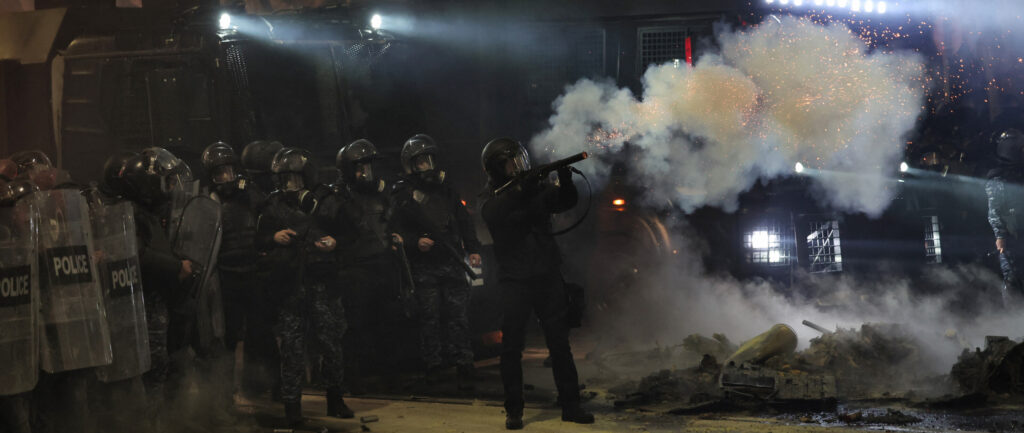In response to an initially peaceful protest in the Georgian capital Tbilisi that was violently dispersed, Denis Krivosheev, Amnesty International’s deputy director for Eastern Europe and Central Asia, said:
“The Georgian authorities have launched another punitive campaign against peaceful protesters. The use of water cannons, tear gas, pepper spray, and rubber bullets at close range to demonstrators’ faces, as well as the constant pursuit and beating of peaceful demonstrators, demonstrates the illegal use of Their determination to suppress dissent with force also betrays their complete disregard for the rights to free speech and peaceful assembly.
The use of high-pressure water cannons, tear gas, pepper spray, and rubber bullets at close range to target the faces of demonstrators, as well as the continuous pursuit and beating of peaceful demonstrators, demonstrate the government’s determination to illegally use force to suppress dissent.
“Police violence, including the abuse of detainees, must stop immediately. All allegations of police brutality must be promptly and effectively investigated, including those related to more than 20 violent attacks on journalists. Those detained simply for peacefully participating in protests People must be released immediately and those reasonably suspected of committing internationally recognized crimes must face a fair trial.
“We also call on the international community to closely monitor administrative and criminal proceedings against protesters to help ensure that judicial processes are not used to unduly punish those who exercise their right to protest.”
background
Protests broke out in Tbilisi on November 28, 2024, after Prime Minister Irakli Kobakhidze announced that Georgia would suspend EU membership negotiations until 2028. Leigh joined protesters who blocked streets near the Georgian parliament with barricades, demanding the decision be overturned.
According to the Interior Ministry, 43 protesters were detained and charged with disobedience and minor hooliganism, while investigations into more serious charges were ongoing. Georgia’s ombudsman has criticized police for illegally using force and mistreating peaceful protesters and journalists in a campaign of “retaliation and intimidation” with impunity.
More than 30 journalists were reportedly attacked by law enforcement officials, including Formula TV’s Guram Rogava (hit in the head) and Publika’s Lekso Keshelashvili (nose broken).
Several female politicians and journalists have reported being subjected to gender and sexual humiliation and degrading treatment, including seriously injured opposition politicians Elene Khoshratia and Nana Malla Nana Malashkhia, and Radio Free Europe reporter Salome Chanduneli, who suffered personal attacks and insults.
Protests are scheduled to resume at 7pm local time on Friday.


